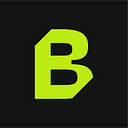Welcome to Schooled by Breach! Our latest weekly newsletter where Breach writer, Adetomiwa talks to people with experience about pressing crypto questions, learns a lesson and shares the findings with you. Crypto can be easy, so let’s figure it out together. Out every Friday!
TL;DR
Decentralised autonomous organisations (DAO) seem complex to put together, but that’s not always the case. CX_Kariiwe, a Non-fungible Token (NFT) artist who is currently building a DAO called NFTunreal, says the first and most important thing any DAO needs is an active community. CX says other important needs are your mission statement, multi-singatory wallet.
As the child of serial entrepreneurs, I am no stranger to how difficult it can be to start and own a business. All the decisions you have to make, the constant dance of trying to outsmart fraudulent employees, firing and rehiring people…the pressure!
As a person who has attempted to set up a few organisations myself, I have learnt first-hand one thing you can only fully understand from experience: how difficult it is to find the right partner.
It’s basically a chamber of never-ending debates and conflicts. Everyone has ideas of how a business should run and a lot of businesses fail because of it. Mine certainly did.
I think a lot about what my partners and I could have built if disagreements didn’t kill our business, which is possibly why I’m so intrigued by the concept of a Decentralised autonomous organisation (DAO).
What is a DAO and how does it work? To answer these questions, I spoke to CX_Kariiwe (alias), a Non-fungible Token (NFT) artist who is currently building NFTunreal, which he says is “in the process of becoming a DAO”.
A DAO is an entity with no central leadership, governed by a community organised around a specific set of rules enforced on a blockchain. It has no CEO and staff or human management. Instead of leaving decisions to a few partners, anyone who wants a stake or believes in the project can join the organisation and partake in all decisions. DAOs can be used to build NGOs, for-profit companies and everything in-between.
The general consensus is that for a company to become a DAO, they have to be on the blockchain, but CX_Kariiwe says that while this is technically true, DAOs don’t necessarily have to start out that way.
“To start a DAO you don’t necessarily need too much”, he says. “All you need is a mission statement [so people who identify with your cause can find you], a vetting process and a multi-signatory treasury wallet [a crypto wallet that requires multiple signatures for money to move around]”.
💡 The wallet is where all the DAO’s funds are stored. Since all wallets are publicly available on the blockchain, anyone can see how funds are used, without the need for a financial report. All payments from the DAO are processed through their multi-signatory wallet.
NFTunreal’s over 100 members are presently hosted on WhatsApp and Discord. Their primary tasks at the moment centre around discussing NFTs and teaching each other, but if decisions need to be made, there are polls and discussions that ensure everyone is involved.
CX points out that for a DAO to work, the members have to be active because that is the bedrock of the operation. “Everyone dedicates their time and effort to the success of what they’re building”. Case in point: most DAOs don’t have employees — everyone chips in by volunteering for tasks (sometimes the community decides to make them paid gigs), voting on DAO decisions, and whatever else is needed.
“You can be in a DAO and not get any significant compensation”, says CX, but — based on the DAO community’s discretion — people are paid to perform tasks they volunteer for.
This is possibly why DAOs have project-specific vetting processes. My understanding of this vetting process is that it requires blockchain-powered digital contracts (Smart Contracts), but CX says while this will benefit you in the long run for keeping public records (which is one of a DAO’s core ideas), a smart contract isn’t all that necessary at the start. NFTunreal currently uses an online form to vet its members. Once the community approves them, they get added to the group chats.
Essentially, a DAO takes away the burden of sole decision making from the originator and creates a community system where anyone interested can join and become part of the building process. DAOs aren’t centred around any single person or group of people, so members can come and leave as they please without jeopardising the organisation’s plans.
However, the drawback of a DAO’s democratic strategy is that decision making can sometimes take longer than the traditional top-down strategy. Also, people who don’t have much knowledge about the industry get to make decisions, some of which might not be the best for the organisation’s growth.
For my last question, I asked CX if the blockchain is even necessary at all for a DAO to work.
He told me that DAOs are built on the blockchain to aid the transparency mission. “Everyone [within and outside] the DAO can see what’s happening and keep track of the DAO’s progress and no one has 100% control”. Whereas with any app or other systems, one person or only a group of people are allowed to have admin control. This is why DAOs use the blockchain. For 100% transparency.
At the end of the conversation, I couldn’t help but think about how far my failed project would have gone if it were a DAO. I’m glad people like CX won’t have to experience my own bitter-sweet mistakes.
